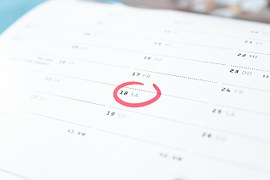
By Lisa Quast
When it comes to landing the job of your dreams, there are so many ways to go wrong in your efforts, including deciding on the right career path.
A few years ago, many professionals were happy to have a job as they slowly recovered from the economic meltdown of 2008–2009, which signified years of an employer’s market. But in 2015, employees have more options, including more jobs in their field, and many are considering other professions, too.
Whether you’re just out of college or looking for a position with another organization, landing an interview takes work. Once you’ve earned that interview, you don’t want to mess it up.
Here are eight ways to make an interview a success:
Anticipate interview questions and prepare answers. There are five groups of questions you should consider for the interview: your background; familiarity with the field/profession; your functionality and competency for key aspects of the job; your style and personality; and how you see your future. It’s helpful to think about questions the hiring manager might ask and prepare how you could respond.
Prepare questions for the employer. Good questions indicate to hiring managers that you know what you’re talking about. Consider questions about the character of the company; the history, nature and future prospect of the open position; and the department.
Conduct practice interviews. The more you do something, the easier it gets, and practice runs will not only help your interview performance but also help you consider further the content or substance of the discussion. Conduct mock interviews with someone you trust. And when you get to the interview, remember to be yourself and don’t be afraid to show your personality. Organizations hire real people, not robots.
Prepare to answer the toughest interview questions. One of the hardest questions to answer is “What’s your biggest weakness?” For interviewers, how you answer this offers insight into your level of self-awareness; how you handle obstacles; and how much you know about the position.
Practice watching the hiring manager’s nonverbal cues for important clues. People say plenty while not verbally saying anything. Facial expression, eye contact, posture, and gestures tend to work together for an overall impression. What are these cues telling you? The answer could help you overcome challenging moments in the interview.
Learn to close the interview with class. You can do just about everything right and miss a key point: Don’t forget to ask the hiring manager about the next step in the interview process. When friends ask whether or not you got the job, how would you know what to say if an interviewer doesn’t tell you what’s next and you never ask?
Ensure all documents are ready for the interview. Preparedness says so much in an interview. It’s better to have documents and not need them than vice versa. Have multiple copies of your resume and reference list. Recommendation letters may not be required, but they are good “leave behind” documents. Other items that will either be necessary or useful include job description, portfolio of your work, paper, and pen.
Dress for positive impact. The dot-com era ushered in a more casual approach, but the recession brought back a more “dress for success” style. Dress appropriately for the position and also the geography. A jet-black pantsuit in Florida during August, for example, will make you uncomfortable and make you look out of place. Match your attire with the image of the company.
New, Reduced Membership Dues
A new, reduced dues rate is available for CAOs/ACAOs, along with additional discounts for those in smaller communities, has been implemented. Learn more and be sure to join or renew today!
